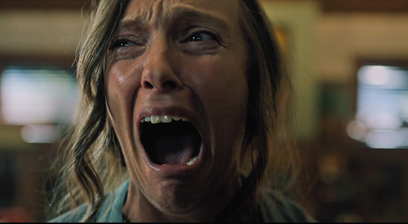Recent research now indicates that trauma or post traumatic stress disorders (PSTD) can actually impact the next generation through what is known as transgenerational trauma. We all know that trauma is an emotional response to something distressing or disturbing and victims of trauma quite often suffer from recurring nightmares, depression and a range of other stress related illnesses that can have a serious impact on their ability to function in society and within their communities. However, we also now have mounting scientific evidence that proves that future generations of trauma victims can be affected biologically by the trauma that their families went through.
The studies began with descendants of survivors of the Holocaust, who in spite of being removed from their parents' experiences, were seeking mental health treatment. Similar findings were discovered when studies were also undertaken on other descendants of families that had experienced the destructive effects of catastrophic events such as war, genocide and terrorism; many were suffering from mental health conditions and in some instances the rates of suicide were also notably higher.
A study from Neuroscience found that stress had an impact on a person's "epigenetic markers" which perform modifications to gene expression instead of a change to the genetic code itself. In the study, mice who had been exposed to trauma early in life displayed behaviours consistent with depression as well as impaired metabolism. The symptoms were passed on, not through genetics but through the father's sperm, and it impacted the next generation of mice.
These findings are already beginning to be put to good use. At a hospital in Atlanta, trauma victims in the ER who tested positive for the genes associated with PTSD received psychotherapy which in turn lead to the development of fewer symptoms.
It is good to know that science is helping us to decode the links between historical trauma and how it possibly links to the escalating levels of anxiety and depression in society today. Transgenerational trauma reminds us all that our family and cultural history is shaping who we are today and that seeking support and treatment for any type of trauma related symptom is vital in eliminating it for future generations.

Release Date: 2018
Rating: MA 15+
Running Time: 127 mins
A supernatural horror written and directed by Ari Aster, in his feature directorial debut, and what a debut it is! Hereditary is is the horror film that I have been waiting a long time to see. It left me with such an unsettled feeling, and I couldn't stop thinking about it after I left the cinema, it really had an impact on me. Reminiscent of horror classics like Rosemary's Baby and The Exorcist where the levels of unease and suspicion are always escalating, Hereditary stands out from the crowd with its brilliantly subtle, seriously harrowing and deeply disturbing storyline.
After the death of her mother, Annie and her family succumb to a strange and terrible chain of events. As the cryptic story of their ancestry unravels they become more entangled in something completely sinister that they have inherited.
The performances are absolutely rock solid here with Toni Collette, Alex Wolf and Milly Shapiro bringing Oscar worthy commitment to their roles and Ann Dowd and Gabriel Byrne offering terrific support to them in their small but not insignificant roles.
Like all horror movies that are asking the audience to feel and think on a deeper level, this will not appeal to everyone's taste. However, this is easily one of the best horrors that I have seen in a very long time because of its frightening realistic storyline and bone-chilling tension.
FINAL SAY: We have bound ourselves for now and ever to Yours.
4.5 Chilli Peppers

 RSS Feed
RSS Feed